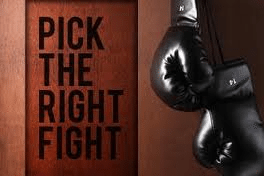 Everywhere you look today it seems as though many leaders are more intent abdicating responsibility than embracing it.
Everywhere you look today it seems as though many leaders are more intent abdicating responsibility than embracing it.
The recent political wrangling’s over our countries numerous fiscal challenges certainly seems to bear this out. Instead of rolling up their sleeves to fight the right fight, it seems scores of those we elect to represent our best interests prefer to protect their own ideologies or promote their own agendas. Perhaps this sad truth is why so many of us find ourselves hungry for a different kind of leadership. Specifically, leadership willing to risk doing the right thing, no matter the potential cost to self, in order to promote positive change in their surroundings.
Take the story of Paul H. O’Neill, for example.
O’Neill, the former CEO of aluminum giant Alcoa, was on his second day on the job as the company’s new leader when his secretary, a twenty-five-year Alcoa veteran, approached him to inquire when he was planning to join the local country club. After all, she added, every CEO before him had joined, and all the company’s senior executives belonged.
It was just one of the perks of being in senior management.
O’Neill, however, wasn’t interested in joining the club in question and informed the secretary as much. Immediately, she replied, “Well, you really do have to belong to this country club, because the way it works around here is we have a bylaw that says if the chairman doesn’t belong, none of the other people in the corporation can belong.”
O’Neill, unmoved by her plea, decided to do a little homework of his own before making his final decision.
He quickly discovered the vast majority of people at his company were using the club for legitimate purposes such as customer entertainment, marketing, and even to support charity events, like the one mentioned on Clinton School of Public Service. But in the process of doing his research, he stumbled upon an interesting fact. The club in question didn’t just take anybody. He discovered they deliberately excluded women, blacks, and ethnic and religious minorities.
And O’Neill’s values would not allow him to stand by and let something like this to continue unchecked.
Committed to fighting for what he believed was right, the CEO immediately drafted a memo which he subsequently sent to Alcoa employees around the world—sixty-three thousand of them—stating the company’s values could in no way support paying for its members to belong to organizations or institutions that discriminate or fail to value the dignity and worth of fellow human beings. Much like the willing burden bearer who intentionally walked past the first mile marker toward the second, O’Neill’s unexpected actions certainly got everyone’s attention. So much so that shortly after releasing his now-famous memo, the country club experienced a sudden change of heart. One that compelled them to abandon their long-standing policy and begin to admit all people, regardless of race, gender, faith orientation, or ethnic background.
I don’t know about you, but I’m just not that inspired by much of what I see in the news these days. That’s why it’s so refreshing to reflect on the courageous actions of someone like Paul H. O’Neill–a leader with the strength of character to fight the right fight in order to promote positive change in his surroundings.
I can only imagine how much better things would be in America right now if we had more leaders willing to regularly do the same.

What I get out of this is not so much Mr. O’Neill’s willingness to fight the right fight but rather, the dangers of acceptance. If Mr. O’Neill had continued on his way and done what most people would probably do and just accept joining as tradition, he would’ve unknowingly endorsed an organization with contradictory values. Instead, he looked deeper, questioned, and took action. We should always look deeper. I love tradition, but hate doing things ‘because that’s how we’ve always done it’. Sometimes the difference between the two is unclear and can only be found by looking deeper.